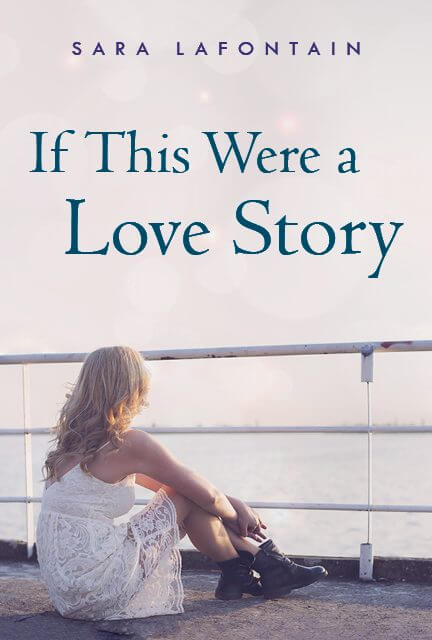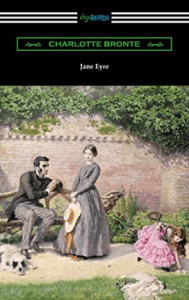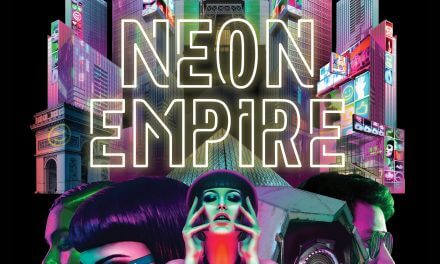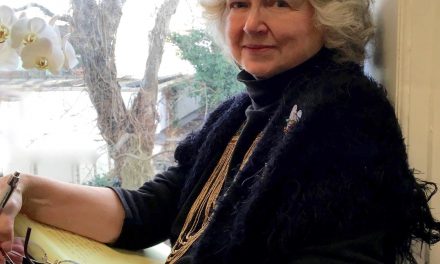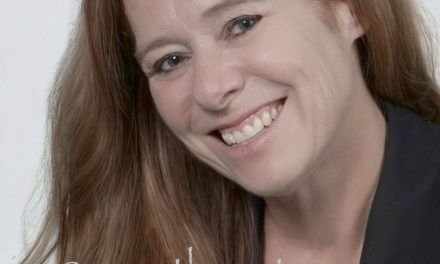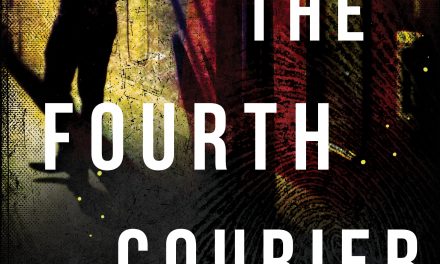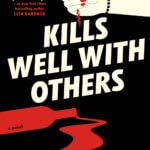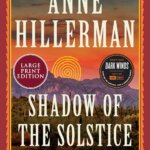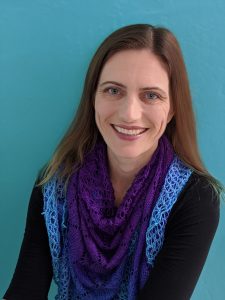
Sara LaFontain
Sara LaFontain, author of the Whispering Pines Island series, joins me today in a socially-distanced interview. Sara writes Women’s Fiction love stories. Her books feature unreliable narrators, flawed characters, and people finally finding happiness. Prior to embarking on a writing career, Sara held a variety of jobs including wildlife tour guide, purveyor of fine chocolates, cafeteria worker, English teacher, domestic violence victim advocate, and family law attorney. She holds a BA in International Studies from Bowling Green State University, and both an MA in Latin American Studies and a JD from the University of Arizona. All of this means that she is overeducated and has spent far too much money on textbooks. She currently lives in Tucson, Arizona with her husband and two children. When she isn’t writing, she’s experimenting with new crafting projects, knitting, gardening, and bragging about desert winters.
SS: Have you always been driven to write? Or did you begin writing in response to a particular stimulus?
SL: I have always wanted to be a writer, but I didn’t start actively working toward that goal until a few years ago. Prior to that, I would just occasionally start a book or short story, but I’d never finish. I still have a stack of notebooks full of incomplete stories that I tried to write as a child, and a folder on my computer of other incomplete stories from the past twenty years. I just didn’t have the focus I needed, or the encouragement. Or, quite frankly, the time. But then, a few years ago, I left my job, and I wasn’t quite sure what to do with my newfound freedom. When I talked to my husband about it, he looked at me like I was being ridiculous and said “You’ve always wanted to be a writer, so why don’t you just … write?” Since I’m not going to argue with someone offering me exactly what I’ve always wanted, I took him up on that suggestion.
SS: Do you generally write in one genre? If so, what is it? And what can readers expect from one of your books?
SL: I write romantic women’s fiction. I take serious issues, give flawed people realistic problems, sprinkle in some humor, and send my characters on emotional journeys. But, because I love my characters, I also give them romance and love. My damaged people always get happy endings.
There is so much unhappiness in the real world, so I guarantee my readers that no matter what I put my characters through, no matter how tragic their backstory, they don’t get real world endings. They get their happily ever after. Reading is supposed to be an escape, so that’s what I put in my books – a chance to see everything resolved, the bad guys getting punished, and the women you’ve (hopefully) grown to love finding happiness.
SS: What are you working on at the moment?
SL: I have two projects going at the moment. One is a novella in my Whispering Pines Island series which is sort of a prequel to my latest novel, If This Were a Love Story. It’s a fun little backstory and gives insight as to what really happened with Nicole, the sister of the novel’s protagonist.
My other current project is a brand new trilogy, unconnected to my other series. It mostly takes place in Scottsdale, Arizona, and is a rom-com/chick lit. I’m actually rather excited about it, and I hope to release all three books this winter. Unfortunately, coming up with titles is my weak spot, so I can’t tell you what they’re called yet.
SS: When you are creating a story, do you avoid reading books in the same vein so as not to be influenced by others, or do you seek out all possible variations for maximum inspiration?
SL: I always have a writing project (or two, or three) in progress, so if I had to avoid reading books in the same genre as my own while working, I’d be cut off entirely. For me, rather than being concerned about the influence of other writers, the real danger of reading is that I get too absorbed in it, and it detracts from my writing time.
SS: What works best for you: typewriters, computer, dictation, fountain pen, or longhand?
SL: When suddenly hit by inspiration, longhand. But when sitting down and diligently working, I’m on my laptop. I’d like to try dictation sometime, so I can be one of those authors that writes books while on long walks. That’d be fun, and healthy.
SS: Do you hide any secrets in your books that only a few people will find?
SL: Each of my books has an inside joke or two hidden for my husband. Or at least, I like to think they’re hidden—one turned out to be so blatantly obvious that I had several friends ask me if he had seen it yet.
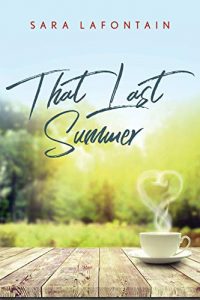
SS: Do you believe you write the kind of book you’d want to read?
SL: Yes, and I think that’s important. The writing process is long, and the editing process can be tedious. I’ve read each of my books over and over and over until my eyes bleed. If I wasn’t writing the kind of books I like to read, I would give up in boredom and frustration. Plus, why write things you wouldn’t enjoy? It’s difficult to sell a project you don’t believe in.
SS: Name a classic you feel guilty about never having read.
SL: I am embarrassed to admit this, but I’ve never read Jane Eyre.
SS: Do you read your book reviews? How do you deal with bad or good ones? Does a bad one affect your writing
SL: You know, every author I talk to says never to read the reviews. I tell that to people myself. But secretly, yes, of course, I read all of them. And honestly, I don’t mind the bad ones, as long as they aren’t wrong. I don’t expect everybody to love my work, but I hate when they include clear misinformation or state that they actually hadn’t bothered to read the whole thing.
That’s not to say I enjoy reading the bad reviews, or that they don’t kind of hurt my feelings. So what I do is I go on to Amazon, look up my favorite books, and read all of their one-star reviews. It serves as a reminder that people have different tastes, and seek out different things in their reading material.
When I get good reviews, I make my husband and children listen while I read them out loud, and then we discuss how awesome that reviewer is, how smart, and astute, and how they have the absolute best taste in literature.
SS: Reading others’ one-star reviews sounds like a great, reaffirming idea. What kind of research did you think you had to do? How much was actually needed?
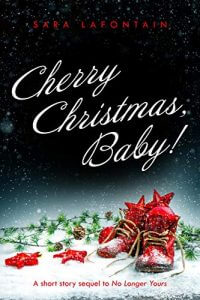
SS: What are common traps for new authors?
SL: I’m going to answer this directed toward indie authors—the most common trap is thinking of your work as an art rather than a business. You can write a wonderful story, the greatest piece of fiction in the universe, but if you don’t think about the business of putting it together in a professional-looking package and properly managing the marketing, nobody will ever know about it. I won’t go into all the steps to do that; this interview would turn into a boring lecture. But just know that if you want your book to be read, you need to be able to take the right steps to sell it. Books don’t sell themselves.
SS: What’s the best writing advice you’ve ever received?
SL: Kill your babies (metaphorically, not literally, please). Best advice I’ve ever received, and the hardest to do. As authors, our books are our babies. We love each and every word. We’re so proud of what we’ve created. But getting too attached is dangerous.
Sometimes I’ll write a scene or a line of dialogue and I’m so enamored of my own creativity. I can’t wait to impress my readers with my wit. But then as the book goes on, that scene no longer fits. That perfect line is no longer appropriate for the character to say. It becomes a struggle, how do I kill my precious scene? How can I delete such perfectly crafted amazingness? It’s hard. But necessary. I’ve got a whole collection of early drafts filled with things that never make it to publication. I’m sure every author does. And you can tell when you’re reading authors that don’t take this advice. Something is suddenly jarringly out of place, and you wonder why it’s even there. It’s because the author loved it and just couldn’t kill their baby.
SS: Do you believe in real-life happily-ever-afters? Does women’s fiction have to have a HEA?
SL: I believe more in the HFN—happily for now. In books, HEAs are easy, because you don’t see beyond the last chapter or epilogue. You don’t see the fights the characters have, the struggles over money, or illness, or dealing with the cute-baby-from-the-epilogue becoming a teenager who experiments with illicit substances. In real life, we can be happy, we can be content with our lives, but we can’t predict the future. I know it sounds cynical, but we can’t guarantee real HEAs.
Women’s fiction focuses on the emotional journey, not the destination, so it doesn’t require an HEA. However, I believe it should at least end on a hopeful note. Maybe it’s my own bias, because I don’t want to read books where you get to the end and the main character is miserable and has lost everything, and maybe dies or something. I want at least the hope that things might get better for her. I want to feel optimism when I close the book.
SS: Do you think political statements belong in romance? Would you write a novel that was a political tract?
SL: Writing romance where the sex scenes are fully consensual and both parties orgasm is a political statement. We still live in a world where women who have sex are called sluts while men who do it are heroes. Politicians want to say what people are allowed to do in the bedroom and with whom they can/should do it. There are whole online communities dedicated to mocking women who dare to admit to enjoying sex.
When we write scenes in which women are fully empowered and enjoy what they are doing, when they can have sex without someone trying to shame them, that is our way of making a statement. And frankly, that’s what I see as one of the most important contribution of romance novels to our society. We as authors can contribute to normalizing healthy sexual relations. And by healthy, I mean consensual and enjoyable, in what ever form they may take.
Personally, while I use innuendo and crude language, I keep my sex scenes off the page. But I make it clear that my characters want it, they like it, and there is no guilt or remorse or shaming involved.
SS: Where and when is your book set? How did you decide on the setting? The timeframe?
SL: My current series takes place on a fictional island in Lake Superior. When I first started writing it, I knew some elements that I needed for a sense of place. I wanted it to take place in a small town with a seasonal tourism industry. I also really wanted it to be an island, to create the sense of both independence and camaraderie that comes from living in a small town in an isolated locale. I looked at real islands around the United States, and eventually decided it had to be Lake Superior, partly because the lake is large enough that I can claim a big section and stick an archipelago in it, and partly because I spent a large portion of my youth in the Midwest. I didn’t feel comfortable writing about an island off the coasts of Washington or Maine, because I’ve never been to those states and wasn’t sure I could portray them accurately. The name, Whispering Pines Island, was easy—I wanted something that evoked the environment (cold and pine-y), and common enough that it sounded realistic. If you google it, you’ll find places in just about every state that share that name. There’s a camp near where I live, there are parks, I even recently saw it in a TV show.
As far as when to set it, I write contemporary stories, though my series is a couple of years behind real time. I try to be accurate with what’s going on in the world, so I’m already thinking about what’s going to happen to my characters when this pandemic hits. But there will be a couple other books between now and then.
LIGHTNING ROUND:
Describe your books in 3 words: light, clever, optimistic
Another genre that you would love to write: YA
When writing, are you a night owl or morning person? Night owl who wishes she was a morning person
Pantser or Plotter? Panster
Book you’re currently reading: Wings of Fire, Book 1 (to understand what my kids are always talking about)
Your favorite guilty pleasure: Wine + knitting + trashy reality TV
Your favorite genre of romance: Rom-com
Who’s your favorite women’s fiction author? I can’t alienate my peers by revealing that
********************
If This Were a Love Story (Book 3 of the Whispering Pines series) is available through Amazon.
********************
Excerpt from If This Were a Love Story, a novel about an alcoholic trying to piece her fractured life together and struggling with admitting to her addiction and taking responsibility for her actions. Amanda – who is on probation for a DWI – is on her way to a summer job on Whispering Pines Island. In typical Amanda fashion, she had one last drunken escapade before settling in. She was rescued from the bar by a man she just met. And now she’s meeting him again:
Stepping out into the sun made her squint and immediately reminded her of her pounding headache. It was far brighter than any northern sun had the right to be. Worse, she’d somehow misplaced her sunglasses in the motel, if she’d even remembered to pack them. Her last day in Texas had been nothing but tears and arguments. Her mother kept spouting nonsense phrases like ‘you need to get away from your triggers’ and ‘you have a problem.’ Yeah, she did have a problem. Her twin sister had left the city, moved out, and didn’t invite her to come along, and, as a result, Amanda lost everything. It was Nikki’s fault, not hers. But nobody seemed to see that. They just kept pointing out that Amanda kept ‘cheating on her probation,’ as though a couple of beers in the evening ever hurt anybody. She didn’t own a car anymore, so it wasn’t like she was out drinking and driving and taking out any more stop signs.
Despite her headache and desperate need for caffeine, she made it to the docks on time, and bought a ferry pass. A month pass, so she could come back to the mainland frequently. Sure, she’d agreed to live with her cousin and work on Whispering Pines Island, but she’d visited before. It was a tiny boring town with nothing to do. There was no way she would hang out there in her free time, and she assumed there’d be lots of that. Ferry’s Landing wasn’t much better, but at least there was more than one bar. And no nosy cousin trying to supervise everything either.
The view from the ferry office was nicer than she expected, especially the tall dockworker with broad shoulders and a shade of light brown stubble on his chiseled cheeks. Yum. She could watch that man all day. He wore coveralls unbuttoned to the waist over a tight undershirt, and his sleeves were rolled up, revealing powerful forearms. Just her type. If he had any tattoos, it’d be all over for her. She could almost hear her sister’s voice in her head: Me-me, stop drooling. The man glanced over at her just then, and for a panicked second she was afraid she had said it out loud.
“You made it!” he called out in a lovely deep voice. Had they met before? Something about him seemed familiar.
“Do I know you?” She struck a flirtatious pose, head tilted and one hip thrust out. It probably wasn’t effective, with her greasy ponytail and lingering odor of vomit, but it was worth a try. He sauntered over and looked her up and down.
“I take it you don’t remember meeting me last night?”
“Refresh my memory.”
“You kissed me.”
“I did?” Wouldn’t she have remembered that? She licked her lips. Not sore, so they couldn’t have done too much—his stubble would have left a mark.
“You did. You kissed me in your motel room.”
“Did we . . . did we do anything else?”
He took a step back and his smile faded. “Seriously? Like what? Are you asking if I raped you? No, we didn’t do anything else. For the record, I didn’t want to kiss you either.”
********************
You can follow Sara here on social media:
Website | Facebook | Amazon author page | Goodreads
This post contains Amazon Affiliate links.
